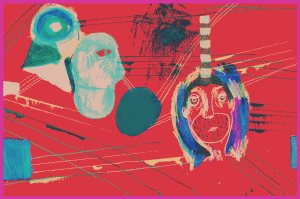For transitioning Veterans, two things are needed: re-skilling and re-connecting.
While re-skilling may seem obvious, reconnecting can be less so.

In his book Tribe: On Homecoming And Belonging, #1 New York Times best-selling author Sebastian Junger masterfully lays out a compelling argument for the deep need for all human beings to cultivate a mentality of responsibility for one another. In the military, we belong to a unique “tribe,” and that sense of belonging can be lost as we shed the uniform. The loss leaves many disillusioned, grasping for a new identity, or mourning their old one.
How can we get connected to our larger human tribe before our post-military world crystallizes?
Engagement in the arts, particularly improvisation or “improv” training, can help us to develop a sense a meaningful connection with other human beings and happens to provide relevant social skills for success in the industry.
“The improv training forced me to perform outside of my comfort zone.”–US Marine Corps Non-Commissioned Officer
There are only four rules in improv:
- Agree
- Say “yes, and”
- Make a statement
- There are no mistakes, only opportunities
The rest is listening and flowing with your partners, or “troupe.” It’s that simple.
According to Sam Pressler, Founder of the of Armed Services Arts Partnership (ASAP), improv is the simplest performing art to unpack. It’s very natural because you’re performing as part of a team, not alone. You also have agency over your words, actions, and leading the scene. Improv rewards initiative and everyone’s contribution is accepted. He also shares an added benefit, “People are so
used to being serious all the time, so it’s good to just break through and be yourself with no repercussions.” To sign up for ASAP classes, fill out a form here.
BJ Lange, an Air Force veteran, comedy helped him to hyperfocus in his work as a medic. It also brought him through a traumatizing cancer scare.
He now teaches a veterans-only improvisation class at The Second City in Los Angeles. He reports that his veteran cohorts learn to trust each other and build lasting friendships even after the class ends.
One of my close friends and Infantry Marine stepped on an IED and was immediately shot in Afghanistan. After his long and painful recovery, what did he do with the vertical striped scar down the center of his stomach? He tattooed a corkscrew handle at the top. He’s still one of the funniest people I know, and I hope he goes into stand-up one day.
Improv training provided by the Dallas Comedy House remains part of the Tech Qualled Launchpad Academy, both for building camaraderie and for sharpening sales skills like listening, thinking fast, and responding with mental agility. Here are some of our veteran candidates’ reactions:
“Improv does an excellent job of breaking down the barriers that exist between people who have never met in person before.” – Air Force Officer
“The improv training was incredibly uncomfortable but really very helpful in the end. “ – Army Officer
If you’re still in the active duty military, you can still benefit from the arts through organizations like Adam Driver’s Arts In The Armed Forces (AITAF). Clare McLaughlin, AITF’s Executive Director,

explains that we all have a shared human experience that goes beyond what culture or job we are engaged in. As the AITF performers travel around the world to various military bases, they arrive early, learn about military culture and life, and develop relationships with their soon-to-be audience. If you want to book a performance at your base, you can fill out a request here.
And if these things don’t float your boat, you can at least follow David Gale’s veteran-centric media group We Are The Mighty for some laughs in between your daily digest of the Duffel Blog and/or Terminal Lance.
So here’s to not taking yourself too seriously. As testicular cancer survivor BJ Langue likes to say, “When life takes one of your lemons, you make jokes.”
Do you have stories of how the arts and/or comedy helped you cope in your military career or transition? Let us know so we can all laugh!
